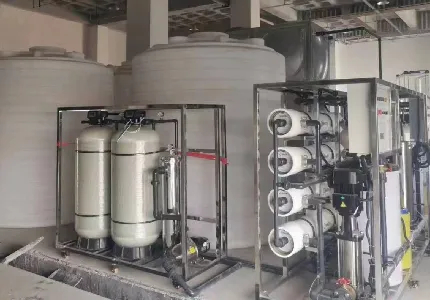loading...
- No. 9, Xingyuan South Street, Dongwaihuan Road, Zaoqiang County, Hengshui, Hebei, China
- admin@zjcomposites.com
- +86 15097380338
- Welcome to visit our website!
Home Water Purification Solutions for Cleaner and Healthier Drinking Water
Home Water Treatment Systems Ensuring Clean and Safe Drinking Water
Water is a fundamental necessity for life, and ensuring its purity is critical for health and well-being. Many households rely on municipal water supplies, but the quality of this water can be compromised by various factors such as aging infrastructure, contamination from agricultural runoff, and industrial pollution. This situation has led more homeowners to consider installing water treatment systems to improve the quality of their drinking water. In this article, we explore the different types of home water treatment systems, their benefits, and what to consider when selecting the right system for your household.
Types of Home Water Treatment Systems
1. Activated Carbon Filters One of the most common types of water treatment systems, activated carbon filters are designed to remove chlorine, sediment, volatile organic compounds (VOCs), and bad odors from water. They work through a process called adsorption, where impurities stick to the surface of the carbon. These filters are available as faucet-mounted systems, under-sink models, or whole-house systems, providing versatility depending on your needs.
2. Reverse Osmosis Systems Reverse osmosis (RO) is a more advanced filtration method that forces water through a semi-permeable membrane to remove contaminants, including heavy metals, salts, and microorganisms. RO systems are typically installed under the sink and can provide high-quality drinking water. They require regular maintenance and filter replacements but are effective for households with significant water quality concerns.
3. Ultraviolet (UV) Purifiers UV purification systems use ultraviolet light to kill bacteria, viruses, and other pathogens in drinking water. This method is highly effective against microbiological contamination and is often used in conjunction with other treatment systems. UV purifiers do not change the taste or chemical composition of the water and are an excellent choice for households relying on well water or other untreated sources.
4. Water Softeners Hard water can lead to scale buildup in pipes and appliances, reducing their efficiency and lifespan. Water softeners address this issue by using a process called ion exchange, which removes minerals like calcium and magnesium that contribute to water hardness. Softened water not only improves the efficiency of household appliances but also enhances the effectiveness of soaps and detergents.
5. Whole-House Filtration Systems For those looking for comprehensive water treatment solutions, whole-house filtration systems provide an efficient way to filter all the water entering a home. These systems can incorporate multiple filtration technologies, including sediment filters, activated carbon filters, and UV purifiers, ensuring that water quality is maintained throughout the household.
water treatment systems for home

Benefits of Home Water Treatment Systems
Installing a water treatment system in your home has several advantages
- Improved Water Quality By removing contaminants, homeowners can enjoy cleaner, safer drinking water. - Enhanced Taste and Odor Treatment systems can effectively eliminate unpleasant tastes and odors associated with chlorine and other impurities. - Health Benefits Access to clean water reduces the risk of waterborne diseases and exposure to harmful chemicals. - Cost-Effectiveness While there may be an initial investment, using treated water can be cheaper over time compared to purchasing bottled water.
Considerations for Choosing a Water Treatment System
When selecting a water treatment system, several factors should be taken into account
- Water Quality Testing Before choosing a treatment system, it’s essential to test your water to determine its specific contaminants. Water testing kits are readily available, and many local health departments can provide testing services as well. - System Maintenance Different systems require varying levels of maintenance. Understanding these requirements will ensure that the system remains effective over time. - Budget Consider both the initial purchase cost and ongoing maintenance expenses. Some systems may require frequent filter replacements or specialized service. - Space Requirements Ensure that you have enough space for installation, especially for larger systems like whole-house filters.
Conclusion
Investing in a home water treatment system is a proactive step towards ensuring the quality and safety of your drinking water. With various options available, homeowners can select a system that best meets their needs and preferences. By understanding the benefits and making an informed choice, you’ll not only improve the quality of your water but also contribute to the health and well-being of your family.
-
The Rise of FRP Profiles: Strong, Lightweight, and Built to LastNewsJul.14,2025
-
SMC Panel Tanks: A Modern Water Storage Solution for All EnvironmentsNewsJul.14,2025
-
GRP Grating: A Modern Solution for Safe and Durable Access SystemsNewsJul.14,2025
-
Galvanized Steel Water Tanks: Durable, Reliable, and Ready for UseNewsJul.14,2025
-
FRP Mini Mesh Grating: The Safer, Smarter Flooring SolutionNewsJul.14,2025
-
Exploring FRP Vessels: Durable Solutions for Modern Fluid HandlingNewsJul.14,2025
-
GRP Structures: The Future of Lightweight, High-Performance EngineeringNewsJun.20,2025
